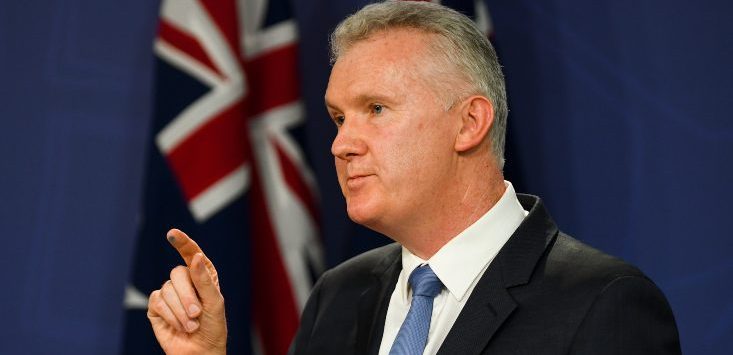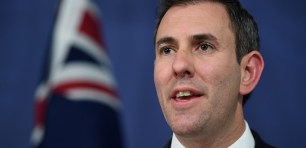
Minister for Employment and Workplace Relations Tony Burke. (AAP Image/Lukas Coch)
At-home care provider Mable has become the latest gig economy business to tack employee-like benefits to its business model, declaring workers will soon have the option to automatically remit superannuation contributions from their pay cheques.
But the move comes as Workplace Relations Minister Tony Burke foreshadows new regulation over the gig work sector, declaring insecure work has spread like a “cancer” through the Australian economy.
On Friday, Mable, a platform connecting aged care, disability, and NDIS support workers with clients, announced the self-employed contractors who provide those services will soon be free to opt-in to automatic superannuation deductions.
Under the current system, gig economy operators are not required to pass on benefits like superannuation, sick leave, or minimum wage protections to workers, as they technically work as independent contractors.
Get daily business news.
The latest stories, funding information, and expert advice. Free to sign up.
The trade-off: workers are largely free to set their own hours of work, have some control over the jobs they choose to undertake, and, at platforms like Mable, can set their own rate of pay.
“Sole traders on Mable take super into account when setting their rates and we know many already have contribution arrangements in place,” CEO and co-founder Peter Scutt said in a statement.
“However, we want to make the process of contributing to super as simple as possible.”
Self-imposed superannuation push arrives before government regulation push
Mable’s push to tack simple super contributions onto its gig employment model arrives just days before the Labor government’s Jobs and Skills Summit, where the nature of Australia’s entire gig economy will come under review.
In a speech excerpt obtained by the Sydney Morning Herald, Workplace Relations Minister Tony Burke is set to warn of major changes to the industrial relations relations system, designed to keep pace with the booming gig sector.
“Gig work drives down wages and it has been spreading like a cancer through the economy,” Burke will tell the Transport Workers Union (TWU) on Friday.
Major players are already expanding their offerings to workers ahead of a potential crackdown.
In June, Uber Australia struck a historic agreement with the TWU, committing to entitlements like an enforceable floor for minimum earnings, an independent conflict resolution umpire, and the right for workers to unionise.
Meal delivery platform DoorDash penned its own agreement with the TWU in May, focused on transparency around working conditions and a proposed pathway for “regulation of the on-demand transport industry”.
Beyond big-name gig economy platforms like Uber, DoorDash, or Deliveroo, Burke will say the gig economy is “extending into the care economy — into aged care and the NDIS — and into industries like security”.
With platforms like Mable now clearly in the federal government’s sights, Scutt says his organisation is keen to work with lawmakers on new national standards governing the sector.
“We’re also supportive of the Commonwealth government’s intention to establish national standards that would require platforms to provide benefits or protections similar to what Mable has been doing for a long time,” Scutt said.
“The key will be to make sure the proposed standards adapt to the different types of platforms,” he added.
The Jobs and Skills Summit will kick off in Canberra on September 1.
Handpicked for you

Government reveals top 10 in-demand skills as COVID-19, flu, and floods suppress hours worked




COMMENTS